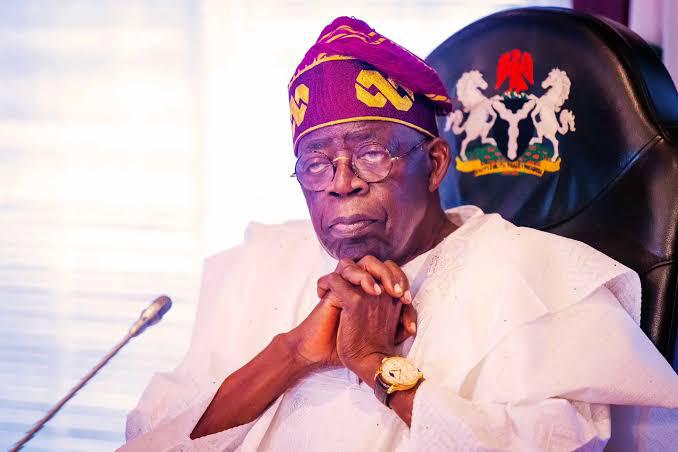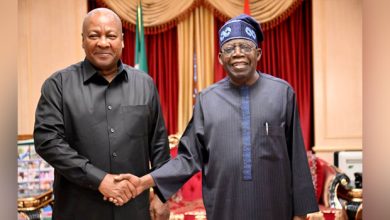Mixed reactions follow Tinubu’s N54.9 trillion 2025 budget proposal

In December 2024, President Bola Tinubu presented a N49.7 trillion budget proposal to Nigeria’s National Assembly. However, on February 5, 2025, he informed lawmakers of an increase of N4.5 trillion, bringing the total to N54.9 trillion.
The breakdown of the 2025 budget includes: N3.6 trillion for statutory transfers, N14.3 trillion for debt servicing, N13.1 trillion for recurrent non-debt expenditure, and N24 trillion for capital expenditure.
Originally, the National Assembly aimed to approve the budget by January 30, 2025. However, due to delays in budget defense sessions, the approval process was extended to February 4. Abubakar Bichi, Chairman of the House Committee on Appropriations, explained that the process involved budget defense, harmonization, and the submission of final reports.
On resuming from the Christmas break, President Tinubu sent two letters to the Senate and House of Representatives, informing them of the budget increase. The president cited additional revenues generated by key government agencies, including N1.4 trillion from the Federal Inland Revenue Service (FIRS), N1.2 trillion from the Nigeria Customs Service (NCS), and N1.8 trillion from other government-owned agencies.
The proposal was read out in plenary on the same day by Senate President Godswill Akpabio, who referred the adjustment to the Senate Committee on Finance and Appropriations for an urgent review. Akpabio assured that the budget deliberation would be concluded by February’s end.
True to his word, the Senate passed the N54.9 trillion 2025 budget on February 13, 2025. In his remarks after the passage, Senator Akpabio praised the contributions of the Finance Committee and other lawmakers, expressing hope that the budget would help move Nigeria forward.
However, the budget has sparked mixed reactions from economic experts, analysts, and manufacturers. Some have questioned why the additional revenue was added to the 2025 budget instead of being used to fully implement the 2024 budget. Others are concerned that the funds may contribute to inflation if not managed properly.
David Etim, President of the Calabar Chamber of Commerce and Industry (CALCCIMA), stated that while budgets are only projections, their successful implementation depends on the government’s ability to generate sufficient revenue. He noted that if the additional N5 trillion is directed towards infrastructure development, it could have a significant impact on the economy, boosting productivity and reducing inflation.
“If this money is used for infrastructure, it will create jobs, boost economic productivity, and help stabilize inflation further,” Etim explained. He added that manufacturers would benefit from improved infrastructure, such as better roads, which would enhance market access and increase demand for their products.
Daniel Dickson-Okezie, a small and medium enterprises expert from the Lagos Chamber of Commerce and Industry (LCCI), emphasized the importance of a strategic allocation of the increased budget. He argued that the government should prioritize long-term investments over short-term spending. He explained that capital expenditure, especially in infrastructure, would have a positive ripple effect on various sectors, improving business operations and raising the overall standard of living for Nigerians.
However, former House of Representatives member Yusuf Mohammed dismissed the budget increase as an “academic exercise.” He questioned why the additional revenue wasn’t used to fully implement the 2024 budget instead of being added to the 2025 proposal.
“Since the President stated that revenue agencies are generating more money, he should have used the additional revenue to implement the 2024 budget fully,” Mohammed argued. “The government should focus on using the funds to complete existing infrastructure projects and boost economic activity before planning for 2025.”
Mohammed also pointed out that the 2024 budget had not been fully implemented, suggesting that the government should ensure its completion before increasing the 2025 budget. He emphasized that the government should adjust its 2025 projections based on the additional revenue and increase funding for ongoing programs.
Despite the differing opinions, there is a common focus on the need for infrastructure-focused spending in the 2025 budget. Experts agree that how the government allocates and executes the additional funds will play a crucial role in determining whether the N5 trillion increase can boost the economy or lead to higher inflation.
Stakeholders are eagerly awaiting the budget’s performance, particularly in addressing the economic challenges Nigerians face.





